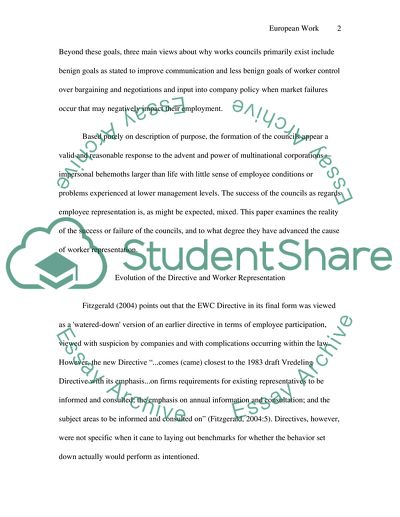Cite this document
(Do European Works Councils Represent a Major Advance in Employee Term Paper, n.d.)
Do European Works Councils Represent a Major Advance in Employee Term Paper. Retrieved from https://studentshare.org/human-resources/1560682-do-european-works-councils-represent-a-major-advance-in-employee-representation
Do European Works Councils Represent a Major Advance in Employee Term Paper. Retrieved from https://studentshare.org/human-resources/1560682-do-european-works-councils-represent-a-major-advance-in-employee-representation
(Do European Works Councils Represent a Major Advance in Employee Term Paper)
Do European Works Councils Represent a Major Advance in Employee Term Paper. https://studentshare.org/human-resources/1560682-do-european-works-councils-represent-a-major-advance-in-employee-representation.
Do European Works Councils Represent a Major Advance in Employee Term Paper. https://studentshare.org/human-resources/1560682-do-european-works-councils-represent-a-major-advance-in-employee-representation.
“Do European Works Councils Represent a Major Advance in Employee Term Paper”, n.d. https://studentshare.org/human-resources/1560682-do-european-works-councils-represent-a-major-advance-in-employee-representation.


